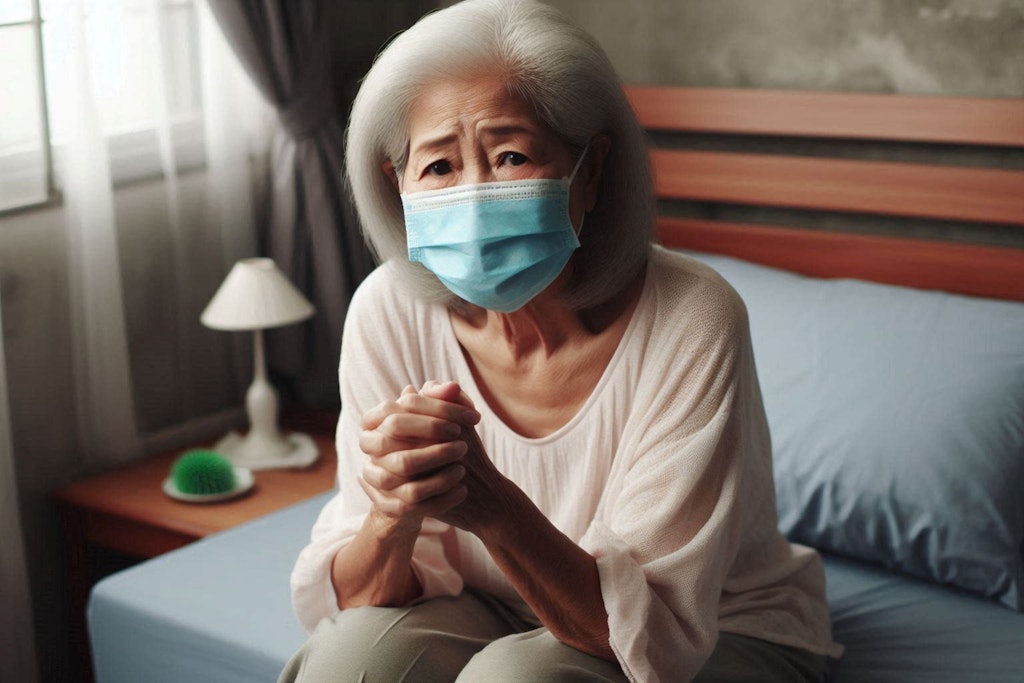As COVID-19 cases rise, Gov reinforces the importance of education
Published on 18 June 2024 (Last updated on 11 July 2024)

As COVID-19 cases in residential aged care hit an 18-month high, the Government released a communication toolkit to help providers and staff effectively convey the importance of vaccines.
Key points
- As of June 13, 2024, there are 4,147 active COVID-19 cases across 487 separate active outbreaks
- Resident cases account for two-thirds of all active COVID-19 cases with 3,779 residents and staff testing positive for COVID-19 between June 6-13
- Long-term data indicates the current COVID-19 wave may have reached its peak, having eclipsed all other waves since January 2023
- Between January 1 and June 13, 2024, COVID-19 was the cause of death for 2% of permanent aged care residents
Less than a month has passed since the Chief Medical Officer, Professor Paul Kelly, and the Aged Care Quality and Safety Commissioner, Janet Anderson AM, wrote to all board chairs of residential care providers to warn them about “disappointingly low” COVID-19 vaccination rates.
“Vaccination remains the best line of defence in reducing the risk of serious illness and death of aged care residents for both COVID-19 and influenza. However vaccination rates in residential aged care remain disappointingly low,” the letter read.
“You and your Board are responsible for ensuring that residents have access to the recommended vaccine dose as soon as they are eligible.”
But as COVID-19 outbreaks continue to appear – and resident deaths outstrip community deaths – this communication toolkit is another attempt to slow the oncoming tide.
It features talking points to engage with residents, answers to frequently asked questions, newsletter content and social media posts.
The messages reflect the Government’s increasing concern over falling vaccination rates with just 40.3% of residents receiving a booster dose within the last six months. This is almost three percentage points lower than when hello leaders last reported on booster rates in May.
Conversely, there has been a slight increase in the percentage of aged care residents who received a booster dose since the beginning of 2024, rising from 74% on May 8 to 75.4% on June 12.
There have been ongoing calls for increased vaccination education and awareness as many members of the community are no longer familiar with vaccination schedules or requirements.
Speaking to the Sydney Morning Herald, Professor Robert O’Sullivan, President of the Australian and New Zealand Society for Geriatric Medicine, said family and resident understanding is important.
“COVID tends to have poorer outcomes in older people; the majority of [geriatricians’] patients with COVID are patients in aged care,” he said.
“Having vaccine clinics in aged care are a really effective way of making sure people do receive the vaccine.”
ACCPA (Aged and Community Care Providers Association) is also in discussion with the Department of Health and Aged Care over ways to encourage residents, and their families, to be up-to-date with their vaccination requirements.
Aged Care Quality and Safety Commissioner, Janet Anderson, will make an appearance in a webinar this Thursday, talking about Vaccinations and outbreak preparedness. Anyone interested in attending can still register online.
Representatives from the Department of Health and Aged Care will also be presenting, including Rhiannon Box, Assistant Secretary, Emergency Preparedness and Response, Alison McMillan, Chief Nursing and Midwifery Officer, and Genevieve Donnelly, Assistant Secretary, National Immunisation Division.